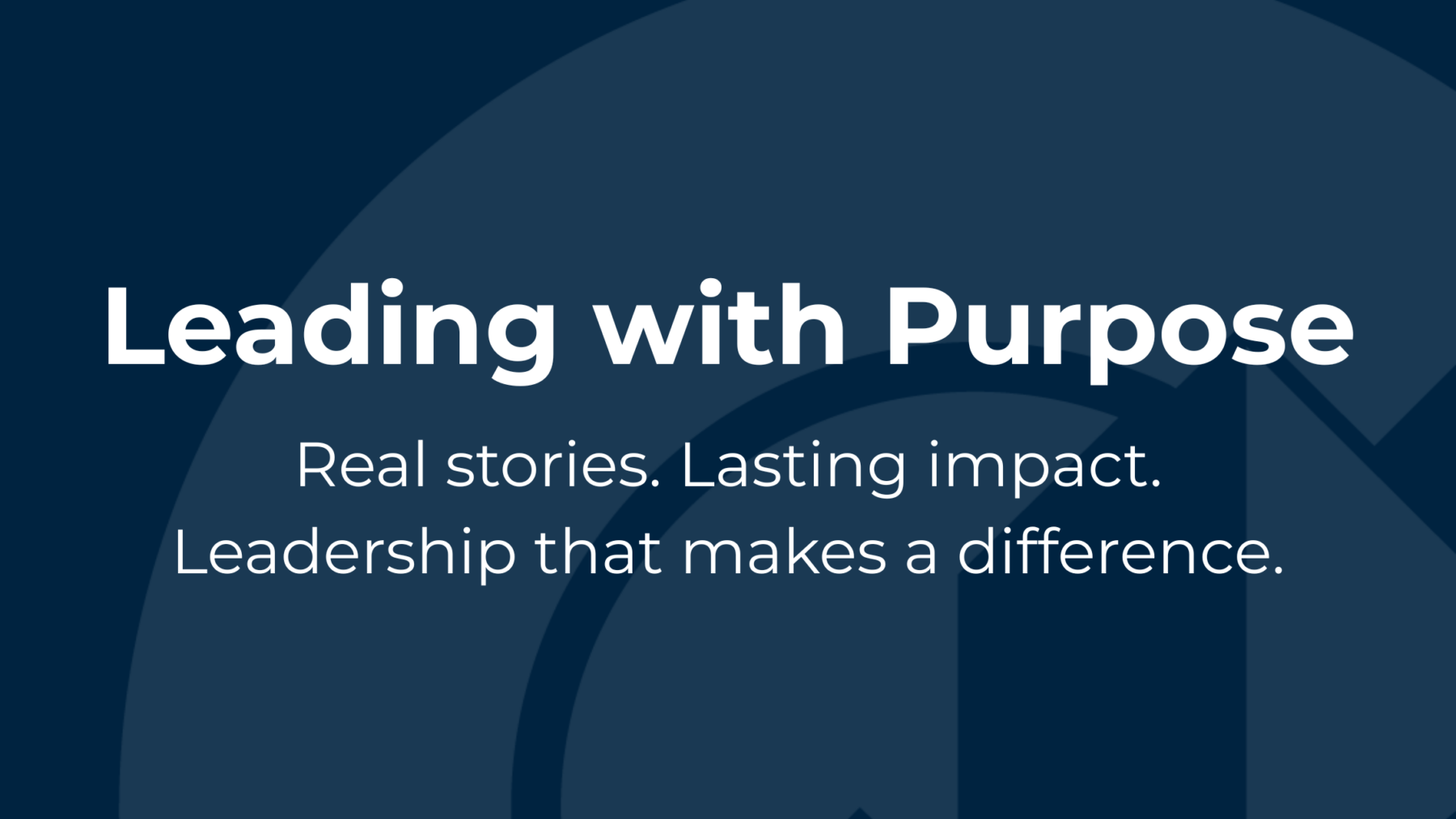Only 18 of 100 students will graduate high school, enroll in post-secondary, complete that degree and immediately start work. It’s a number that business and education leaders said must change.
“It’s nowhere near the numbers we need in our pipeline,” Denver Metro Chamber President and CEO Kelly Brough told 650 business leaders today at its State of the City, presented by United Airlines. “We have to close that gap.”
Through partnership of the public and private sectors and an innovative initiative being supported by the Chamber and Mayor Michael B. Hancock, that change is possible.
That initiative is Prosperity Denver. It would fund scholarships and support services through a .08 percent sales tax increase – less than a penny on a $10 purchase. Those eligible (18 to 25-year-olds who hold a high school diploma or GED and have lived in the city for at least 36 months) would be reimbursed for their education, from certificates and apprenticeships to two and four-year, once they complete that education. Brough said this may be a model for how communities across the state can get more students to and through education.
“We all must be committed to our labor pipeline, creating that talent pipeline,” Hancock said. “We must ensure that kids today can fill those jobs that we’re preparing for tomorrow.”
That matters because by 2020, 74 percent of jobs in Colorado will require some post-secondary education.
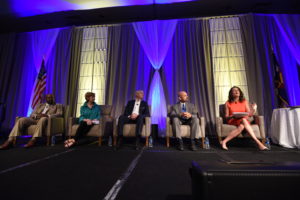
“We will require the most educated workforce in the country because of the economy we are building,” Brough said. “We have a lot of work to get our kids there.”
She and a panel of business and education leaders shared their strategies for building that pipeline while also recognizing that 85 percent of jobs that will exist in 2030 haven’t even been invented yet.
Build a strong foundation. Because tech and AI are rapidly disrupting industries and jobs, Colorado Community College System President Joe Garcia cautioned on focusing too much on specific job skills and instead focusing on skills that will transfer in a knowledge-based economy. “We need to make sure we’re providing students with a foundational background,” he said, adding that building a career “takes a different kind of training” than finding a job.
Provide real-world experience. After traveling to Switzerland and Germany, Pinnacol Assurance President and CEO Phil Kalin was all-in on the apprenticeship model. The company has taken on 20 students who are learning all aspects of the business, from marketing to claims, thanks to a partnership with CareerWise Colorado. “This is not about doing good deeds in the community. This is about how we as business leaders work with schools,” Kalin said, adding that the goal is to bring on talent that not only gets their business but also their culture. “Hopefully they will become part of our business.”
Partner, partner, partner. There are a number of ways to partner, from businesses to other credentialing and training groups. The University of Colorado Denver, for example, provides 12 credit hours to students who have completed a program through Galvanize. “Every job is going to have a software component. Every employee needs to have those competencies,” said University of Colorado Denver Chancellor Dorothy Horrell. “We think that looking at these kinds of new programs … these kinds of credentials, how do we make them stackable?”
Scale up. While access to downtown businesses can be challenging, Aurora Public Schools has found success engaging local small business owners, said Superintendent Rico Munn. “For us it’s about accessibility and scalability,” he said, adding that their students all have a plan for their education and future goals.
Mayors Share State of the Region
Hancock and Golden Mayor Marjorie Sloan celebrated the accomplishments of the region but urged forward-thinking solutions for challenges ranging from affordable housing to transportation.
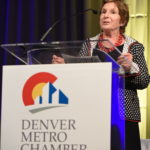
Sloan, who also chairs the Metro Mayors Caucus, applauded the Chamber’s work to address the state’s crumbling transportation system and urged others to join the Chamber and the mayors in supporting Let’s Go Colorado – an initiative that would fund state, local and multimodal transportation solutions through a .62 percent sales tax increase.
“In our region we’ve accomplished a great deal working together,” Sloan said. “Passage of this measure is critical make it easier to live, work and play in communities all across Colorado.”
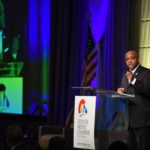
Hancock celebrated gains made in the city after the recession. Since 2011, when he became mayor, 90,000 jobs and 6,600 new businesses have been created. And the city continues to focus on greater equity in access to great jobs, a strong talent pipeline, increasing woman and minority-owned businesses, affordable housing and focusing on mobility.
“It is time that we as a state get serious about our roads,” Hancock said.
Judge Gary Jackson Receives Monte Pascoe Award
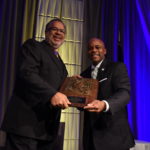
Recognizing his leadership, work to improve the community and efforts to fight for justice and equal opportunity for all, Denver County Judge Gary Jackson was named the recipient of the Monte Pascoe Civic Leadership Award – the first jurist to receive the award.
Prior to taking the bench, Jackson practiced law for over 40 years. His practice included representing attorneys and judges in attorney regulation matters, employment litigation and complex personal injury litigation.
“It is a real thrill to receive this prestigious award,” Jackson said. “(Monte Pascoe) was such a remarkable man.”
Jackson noted Pascoe’s work to integrate Denver Public Schools and noted the collaboration required to create change: “Denver is a great city because we have worked together to make it a great city.”



